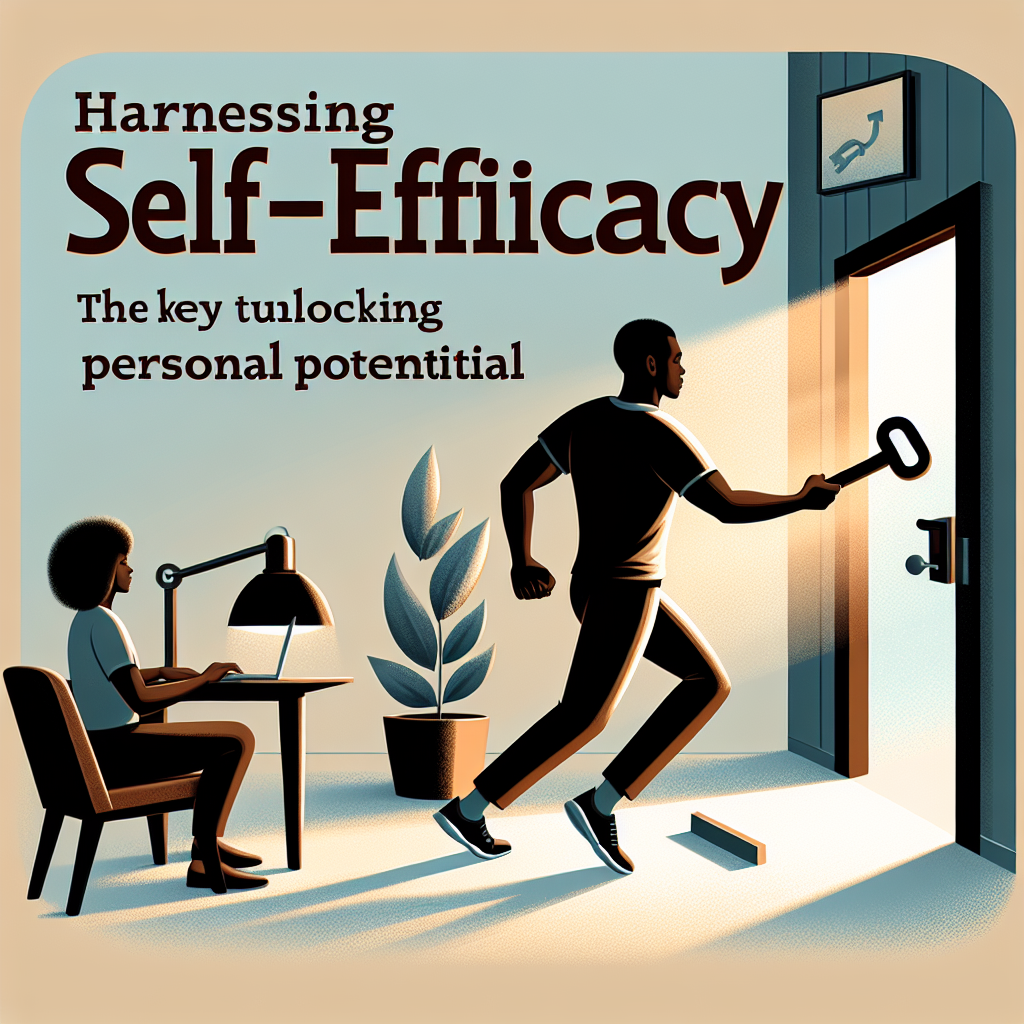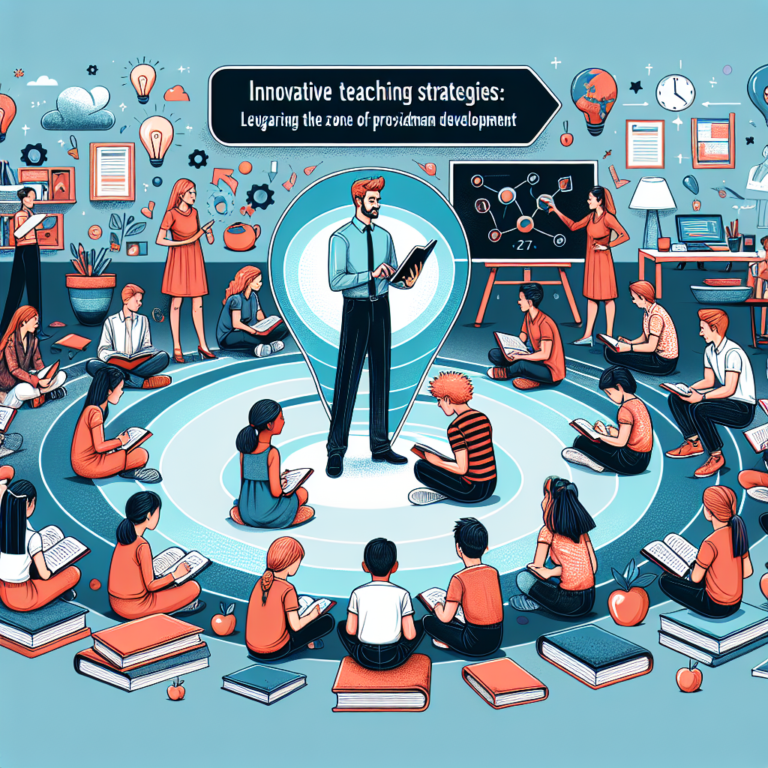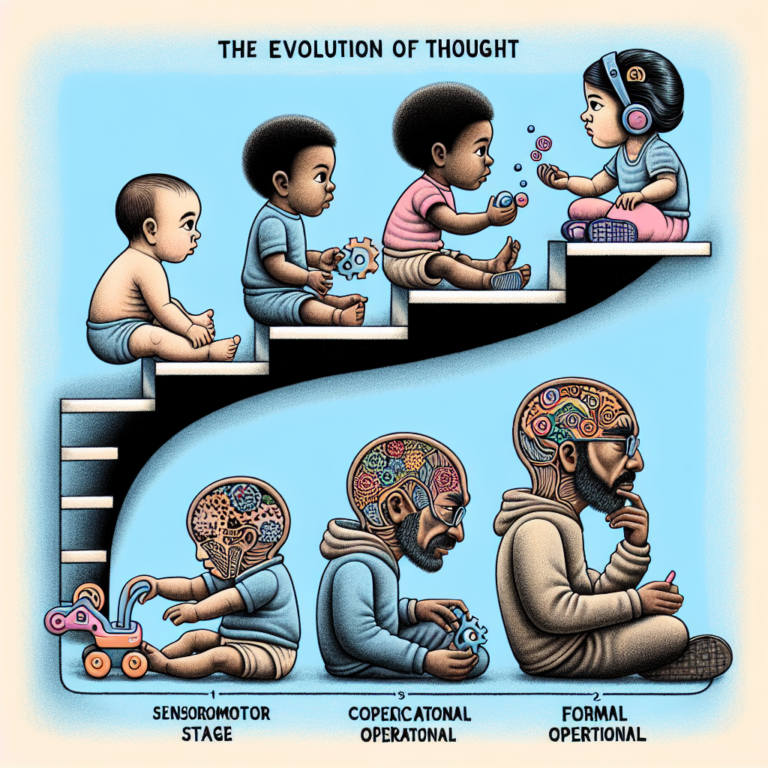
Introduction
Imagine standing at the edge of a vast ocean, waves crashing, the sun beginning to dip below the horizon. The potential for exploration, adventure, and achievement lies not in the water itself but in your willingness to dive in. This scene beautifully encapsulates the essence of Harnessing Self-Efficacy: The Key to Unlocking Personal Potential. Self-efficacy is the belief in one’s abilities to execute behaviors necessary to produce specific performance attainments. It’s not just a psychological concept; it is a transformative force that can change lives. Whether you’re a student facing exams, an entrepreneur launching a startup, or an individual striving for personal growth, understanding and harnessing self-efficacy is vital to unlocking your true potential.
Understanding Self-Efficacy
Definition and Importance
Self-efficacy, as developed by psychologist Albert Bandura, is the belief in one’s capabilities to organize and execute the courses of action required to manage prospective situations. High self-efficacy fosters resilience and empowers individuals to face challenges head-on, while low self-efficacy can lead to avoidance and self-doubt.
The Four Sources of Self-Efficacy
Mastery Experiences: Successes build a robust belief in one’s capabilities.
Vicarious Experiences: Observing others succeed can inspire belief in one’s own abilities.
Verbal Persuasion: Encouragement from others can strengthen self-belief.
- Emotional and Physiological States: Positive emotions can boost self-efficacy, while negative feelings can diminish it.
Understanding these sources can guide personal development efforts and build the foundation of self-efficacy.
The Science Behind Self-Efficacy
To comprehend the real impact of self-efficacy, we must delve into some scientific studies that underline its significance.
Case Study 1: Academic Achievement
A study conducted by the University of California showed that students with high self-efficacy beliefs performed better academically compared to their peers with lower self-efficacy. This research pointed to the fact that students who believed they could succeed were more likely to engage in challenging tasks and persist in the face of obstacles.
Analysis
This case underscores the principle that confidence breeds success. For students, self-efficacy is a critical predictor of achievement and motivation.
Leveraging Self-Efficacy in Everyday Life
Goal Setting and Self-Regulation
One of the most practical applications of Harnessing Self-Efficacy: The Key to Unlocking Personal Potential is in goal setting. Setting achievable goals can provide a clear pathway for success.
Table 1: SMART Goals Framework
| Element | Description | Example |
|---|---|---|
| Specific | Clear and specific goal | "I will run a 5K" |
| Measurable | Criteria to measure progress | "I will run three times a week" |
| Achievable | Realistic goals | "I can run in 30 minutes" |
| Relevant | Goals that matter | "This is important for my health" |
| Time-bound | Set deadlines | "I will complete it in four months" |
By using the SMART model, individuals can leverage high self-efficacy beliefs to achieve their goals more effectively.
Case Study 2: Business Success
A prominent entrepreneur, Sarah Blakely, founder of Spanx, is a shining example of harnessing self-efficacy. Blakely faced numerous rejections yet maintained a belief in her vision and abilities, which ultimately led to a billion-dollar company.
Analysis
Blakely’s story exemplifies how self-efficacy drives individuals to overcome obstacles and achieve extraordinary success, reinforcing the importance of confidence in personal and professional endeavors.
Building Self-Efficacy
Strategies for Improvement
Start Small: Begin with achievable tasks to build a sense of accomplishment.
Seek Mentorship: Engaging with mentors can provide vicarious experiences and verbal encouragement.
Practice Self-Compassion: Acknowledge mistakes without harsh judgment.
- Visualize Success: Envisioning successful outcomes can create a strong emotional state conducive to success.
Charts and Illustrations
Chart 1: Self-Efficacy Development Pathway
Mastery Experiences → Increased Self-Efficacy
↓
Vicarious Experiences
↓
Verbal Persuasion
↓
Emotional & Physiological StatesBuilding self-efficacy involves a cyclical process, where achievements feed into further confidence, encouraging new challenges.
The Broader Impact of Self-Efficacy
Harnessing self-efficacy extends beyond personal achievements; it can influence communities and organizations. Research shows that groups with high collective efficacy tend to produce higher outcomes, fostering a culture of success.
Case Study 3: Team Dynamics
A study by the University of Michigan highlights that teams with higher collective efficacy were more productive and innovative. The belief in their collective capabilities allowed them to tackle complex projects more effectively.
Analysis
This case illustrates that self-efficacy isn’t only a personal asset but a collective one that can transform teams, making it an essential component for organizations aiming for growth.
The Future of Self-Efficacy in Personal Development
Technology and Self-Efficacy
In our increasingly digital age, technology is playing a pivotal role in enhancing self-efficacy. Apps focused on mindfulness, coaching, and skill-building can help individuals track their progress and maintain motivation.
Table 2: Apps for Self-Improvement
| App Name | Purpose | Features |
|---|---|---|
| Headspace | Mindfulness and stress reduction | Guided meditations, tracking |
| Habitica | Habit-building and task management | Gamification, community |
| Coach.me | Goal setting and accountability | Daily tracking, reminders |
Utilizing these resources can encourage a proactive approach to personal growth, reinforcing the principles of Harnessing Self-Efficacy: The Key to Unlocking Personal Potential.
Conclusion
Unlocking personal potential is not merely about what one can do; it’s deeply rooted in what one believes they can do. Harnessing Self-Efficacy: The Key to Unlocking Personal Potential is not just an adage; it’s a call to action. By understanding the sources, implications, and applications of self-efficacy, anyone can transform their lives, overcome their limitations, and achieve their dreams.
Actionable Insights
- Reflect on past achievements to boost self-efficacy.
- Set SMART goals and track progress to cultivate mastery.
- Surround yourself with supportive individuals who encourage growth.
- Embrace challenges as learning opportunities.
FAQs
What is self-efficacy?
Self-efficacy is the belief in one’s ability to succeed in specific situations or accomplish tasks.How can I improve my self-efficacy?
Start by setting small, achievable goals, seeking support from others, and celebrating your successes.Is self-efficacy the same as self-esteem?
No, self-efficacy relates to specific tasks, while self-esteem is a broader sense of self-worth.Can self-efficacy be developed in children?
Absolutely! Encouraging children through praise and supportive environments can boost their self-efficacy.- How do setbacks affect self-efficacy?
Setbacks can harm self-efficacy if not viewed as opportunities for learning; however, overcoming them can significantly enhance it.
Harnessing self-efficacy not only enriches individual lives but also transforms communities, unlocking the collective potential for positive change. Embrace this journey, and discover the extraordinary opportunities that lie ahead.
















